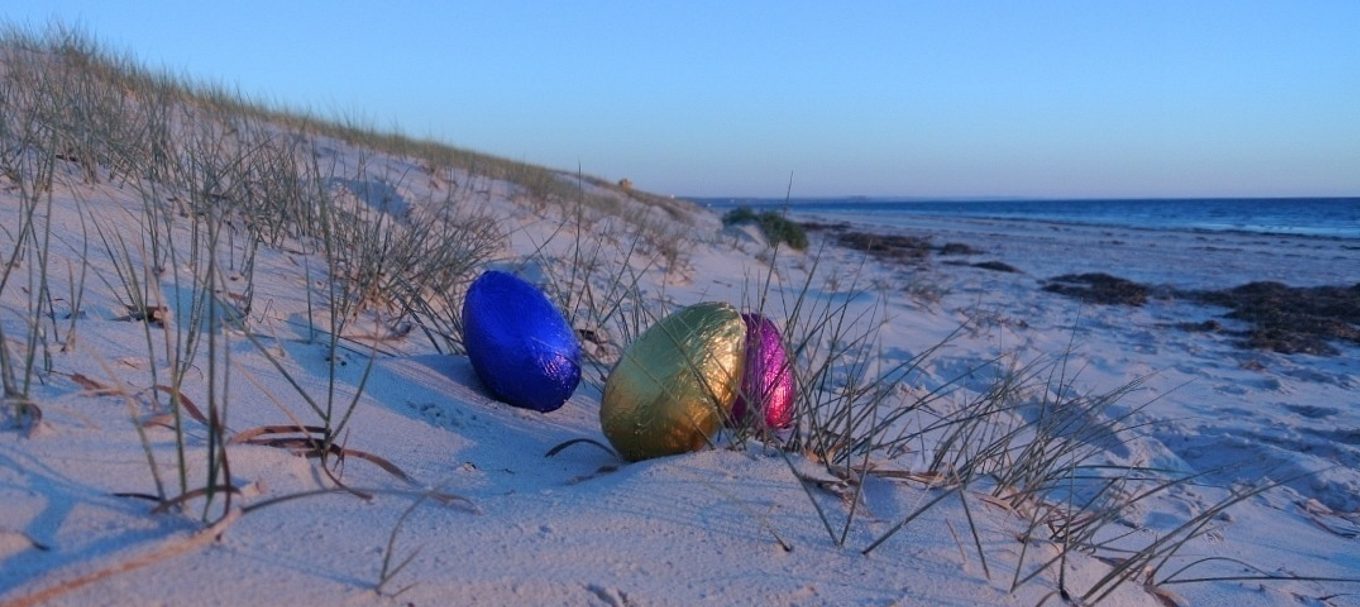
Easter egg hunter?
This super power you’ve been developing from childhood could open up a fascinating volunteering opportunity.
We all know that some species have struggled to thrive in modern times. An example is the Hooded Plover. This beach nesting bird makes its nest on the beach, between the high-tide mark and the base of the dunes. The nest is a very simple scrape in the sand, with one to three very-camouflaged eggs – not so easy to find as the ones in our photo.
The birds lay from August through to March – spring and summer – the busiest time on our beaches. This makes both the eggs and the hatchlings very vulnerable to accidental disturbance and easy victims for predators such as foxes.
A group of volunteers, The Friends of the Hooded Plover – Fleurieu Peninsula, monitor the breeding success of these birds. The group of volunteers assist every year in identifying where eggs have been laid (that’s the egg-hunt bit) and then help Hooded Plover populations to survive the challenges of modern living.
An increase in human population of the coast has brought on many of these challenges, either directly or indirectly. So a group of like-minded people are actively giving back some support to ensure the future of these birds.
The Friends of the Hooded Plover – Fleurieu Peninsula assist when a nest is found, with temporary fencing and signage installed to help protect the nest and subsequent chicks. Visitors to the area can see where the eggs are and can help greatly with simple precautions such as sticking close to the water’s edge and leashing their pet dog when they pass the marked areas.
Natural Resources Adelaide and Mount Lofty Ranges and BirdLife Australia coordinate the Hooded Plover program on the Fleurieu Peninsula, and work closely with councils and volunteers.
For more information have a look at the video made about this project. To report a sighting, or become a volunteer contact a Coast, Estuary and Marine Officer.





